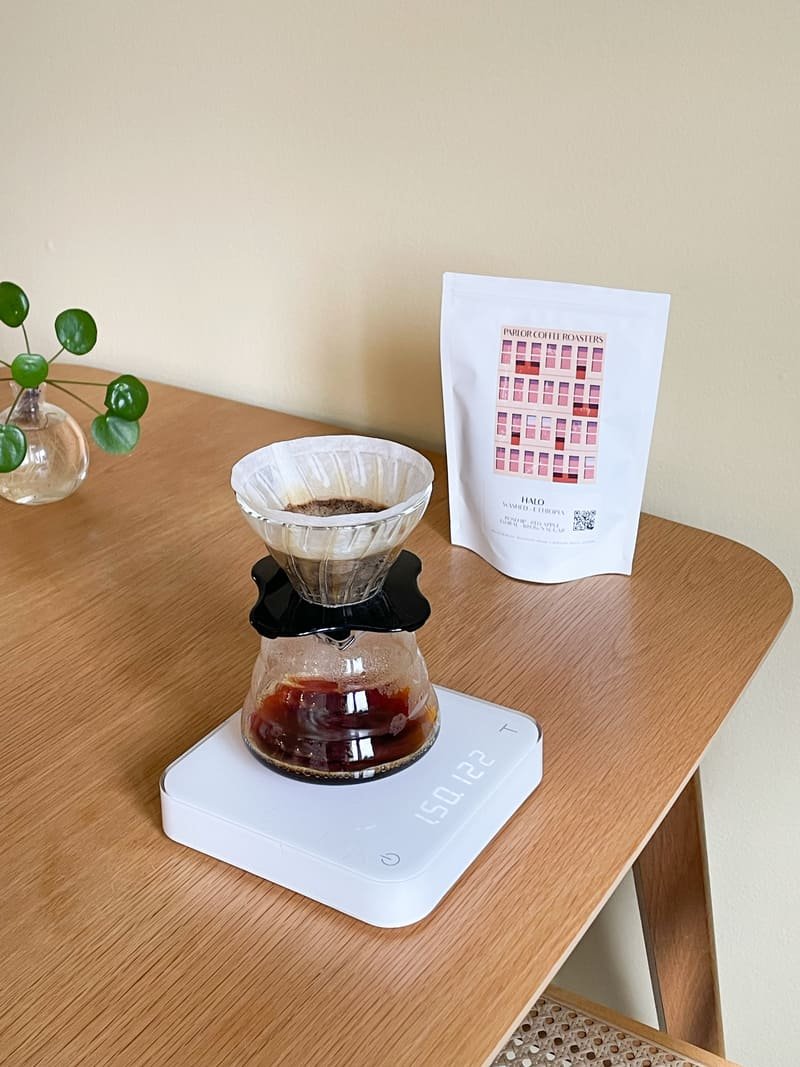We’re excited to feature Boo! from Brussels, Belgium. Founded in 2024, they’re committed to making specialty coffee approachable and inclusive, working directly with producers to ensure transparency and lasting relationships. Here’s what Boo! has to say about April’s coffee box:
LAS PERLITAS
Origin: Colombia
Process: Washed
Altitude: 1600 - 2000 masl
Varieties: Gesha, Tabi, Caturra and Red Bourbon
Tasting notes: Ripe mango, Peach iced tea, Raspberry
”We partnered for the fourth time with our friends from The Coffee Quest to bring you this super nice Las Perlitas, a blend of varieties from different smallholders in Huila, Colombia. This beautifully curated lot brings together exceptional micro-productions of Gesha, Tabi, Caturra, and Red Bourbon, resulting in a washed coffee that bursts with vibrant fruit flavors and delicate florals. Fermentation times range from 24 to 72 hours, depending on environmental factors, allowing for enhanced sweetness and acidity before the coffee is fully washed.”
SIMBI
Origin: Rwanda
Process: Natural
Altitude: 1980 - 2250 masl
Varieties: Bourbon
Tasting notes: Fig, Redcurrant, Cherry, Chocolate fudge
”This is our first time collaborating with Cuprima, and we're super happy to be able to showcase this nice and mellow natural Simbi from Rwanda. Grown in the Huye district at elevations ranging from 1,980 to 2,250 meters, this Bourbon variety thrives in the region’s sandy clay soil, developing a beautifully balanced and fruit-forward profile. After being carefully handpicked, the cherries undergo a meticulous natural drying process. Mellow yet vibrant, this coffee perfectly captures the elegance of Rwandan naturals: delicate, fruity, and irresistibly smooth!”
BUMBA HILL
Origin: Burundi
Process: Washed
Varieties: Bourbon
Tasting notes: Nectarine & Orange juice
”We’re super excited to offer this coffee, as it marks our first collaboration with Osito and Long Miles Coffee, which we’ve been following for a long time and have been eager to work with! Over the years, they managed to improve the quality of coffees, and the lives of the farmers they work with by building new infrastructures, such as the Ninga washing station, offering year-round agriculture assistance, and promoting higher pay. This Bumba Hill lot is a beautiful expression of Burundian coffee.”
Curious about our next roaster?








